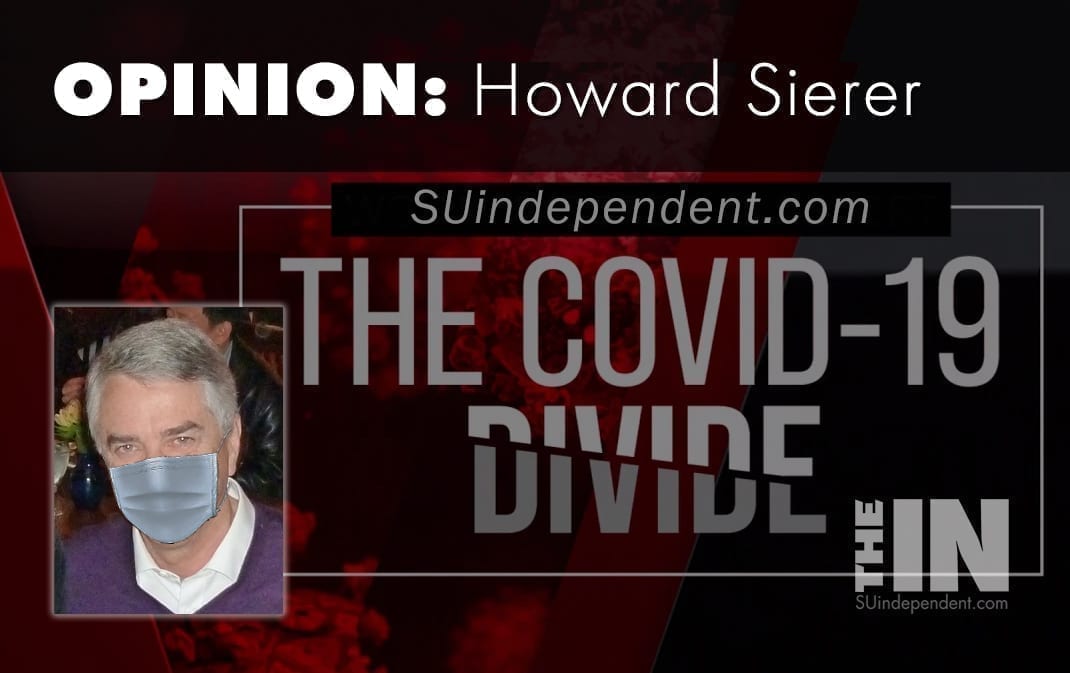
The Liberals, Conservatives, & The COVID-19 Divide
There really shouldn’t be a liberal-conservative divide over reopening the economy following COVID-19 lockdowns. Individuals might differ but I wouldn’t expect that those differences would break on partisan lines. Nonetheless, advocates on one side or the other are mostly categorized by their political leanings.
A number of possible explanations come to mind, each of which probably contributes in part to the sharp disagreements on when and how much to reopen. Added to that, there are underlying facets of human psychology that send us in different directions.
The most polarizing figure of our times is President Donald Trump. Some on the right see him as draining the swamp and, to use his phrase, “making America great again.” Some on the left see him as a fascist, racist, homophobic demagogue.
If he’s for something, the left is automatically against it. As a result, when Trump repeats something his medical advisers have told him, progressives leap at the chance to tear him apart. With the election looming in just over three months, non-scientific political motivations on both sides are at play.
The country’s population distribution certainly plays a part. Residents of large cities tend liberal while “flyover country” is less densely populated and more conservative. Larger cities have suffered a greater proportion of COVID-19 illness, especially where commuters are packed into buses and subways. Nonetheless, even in these cities, Republicans are still more likely to support reopening.
Shutdowns have impacted conservative, working-class Americans far more than college-educated, liberal-leaning folks, especially in the media. It’s easier to rationalize shutdowns when you’re working from home.
Liberals are generally supportive of increasing governmental involvement in our lives. To them when governors and mayors use overriding considerations of public health to command businesses and individuals, it validates their predilection that “government knows best.”
For many on the left, this almost unprecedented commandeering of the economy is seen as a welcome stepping stone to ever-increasing government regulation of business. They see businesses as prioritizing profit over the public good.
Of course, this expansion of government at the expense of personal freedom and initiative is exactly what conservatives fear. They’re equally astonished at liberal claims that any new government social program will make people “free” when instead they see increased dependence on government. Conservatives will choose personal responsibility, over government control any day.
In addition to all these explanations for the COVID-19 political divide, there are some underlying human psychologies and moralities at work.
Studies from the National Institute of Health have shown that liberal and conservative brain functions differ. In general, conservatives are more aware of risks and as a result, more likely to value the known and the proven. Liberals, less sensitive to risks, are more open to change and experimentation.
This divide seems to be reflected in attitudes toward things like social change, restructuring institutions, and financial risk. Conservatives find themselves sharply aware of possible problems while liberals tend to support new approaches to old issues.
However, being aware of risks doesn’t necessarily mean avoiding them. For example, conservatives tend toward riskier jobs. A quick glance at Democratic vs. Republican occupations makes the point.
Liberals and conservatives divide on issues of morality as well, often stereotyping each other as immoral. Moral Foundations Theory identifies five aspects of morality: care, fairness, authority and tradition, in-group loyalty, and purity. Liberals prioritize care and fairness while conservatives strike a balance on all five.
As a result, liberals might justify supporting a new program or regulation using the words, “If it saves even one life,” relegating program costs to the back burner. Conservatives see the risk of unforeseen social ills and economic consequences affecting many lives for decades to come.
So, take your pick of possible reasons why liberals and conservatives are so polarized on reopening the economy. And when you do, recognize your political preferences are showing.
Viewpoints and perspectives expressed throughout The Independent are those of the individual contributors. They do not necessarily reflect those held by the staff of The Independent or our advertising sponsors. Your comments, rebuttals, and contributions are welcome in accordance with our Terms of Service. Please be respectful and abide by our Community Rules. If you have privacy concerns you can view our Privacy Policy here. Thank you!
Click here to submit an article, guest opinion piece, or a Letter to the Editor





64 cases in SW Utah today by the way. How would you describe a Conservative organization in Utah that in the middle of a pandemic arranges antimask flashmobs via Facebook at Harmons locations (which requires masks) in Utah? What if their agenda is herd immunity? We don’t know? Well domestic bio terrorism comes to mind. Current Science shows herd immunity may be unattainable – see recent study in Spain.
On that note, based on studies of 1918 pandemic those communities that addressed health as a priority over commerce recovered economically, quicker and stronger than those that put commerce over public health. THIS IS A FACT. We can now see it for ourselves in Texas, Arizona, Georgia, and of course Utah. Political BS aside, we will soon hit rock bottom as anti-masker behavior kills the economy as well.
Itemizing the differences in conservative/liberal thinking was enlightening. Understanding how others look at the world improves our ability to be more understanding when they say something we can’t relate to.
Great article!